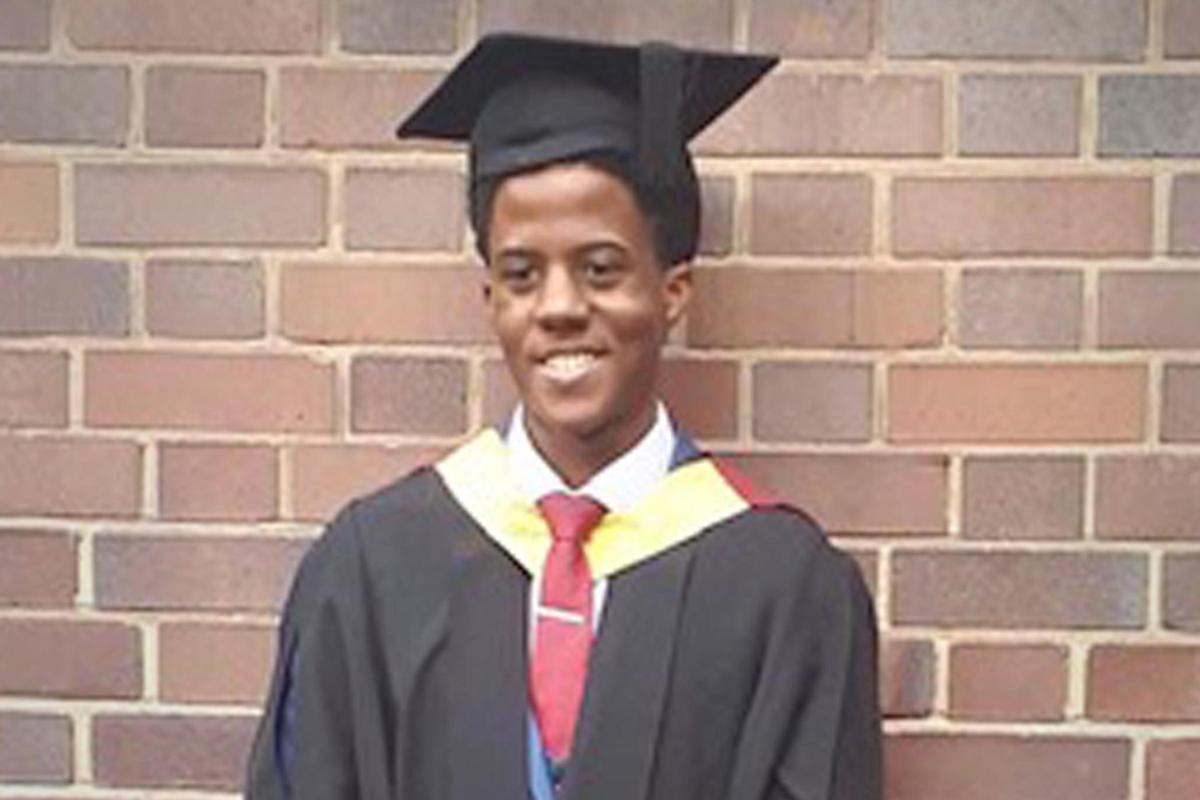‘NHS is letting sickle cell patients down’ say parents of 22-year-old who died after hospital failings
Exclusive: As the UK marks Sickle Cell Awareness Month, the mum of a young man who died following hospital failings says patients are being let down

Your support helps us to tell the story
From reproductive rights to climate change to Big Tech, The Independent is on the ground when the story is developing. Whether it's investigating the financials of Elon Musk's pro-Trump PAC or producing our latest documentary, 'The A Word', which shines a light on the American women fighting for reproductive rights, we know how important it is to parse out the facts from the messaging.
At such a critical moment in US history, we need reporters on the ground. Your donation allows us to keep sending journalists to speak to both sides of the story.
The Independent is trusted by Americans across the entire political spectrum. And unlike many other quality news outlets, we choose not to lock Americans out of our reporting and analysis with paywalls. We believe quality journalism should be available to everyone, paid for by those who can afford it.
Your support makes all the difference.Life will never be the same for Leila and Errol after the death of their 22-year-old son Darnell, who lived with disabilities including sickle cell disease.
Darnell Smith died on 23 November 2022 after medics took his vital signs just once in 12 hours instead of the prescribed hourly checks.
Earlier this year, a coroner called on health bosses at Royal Hallamshire Hospital in Sheffield to take action to prevent future deaths.
Darnell, from Sheffield, received regular treatment for cerebral palsy and sickle cell disease, which is an inherited, long-term and potentially life-threatening condition, most common among Black people. It affects about 15,000 in England.
It causes debilitating pain and multiple problems such as severe infections, strokes, chronic fatigue, delayed growth, and progressive tissue and organ damage.
He was also non-verbal, epileptic and entirely dependent on others for his care.

As the UK observes Sickle Cell Awareness month in September, Leila and Errol say they do not feel the inquest’s ruling went far enough.
“What we would like is more accountability from the NHS and the members of staff who were working that day,” Errol said.
They say his case reflects the failures of care experienced by patients with sickle cell.
“I feel like there’s still a lot of injustice still being done, not just because of what happened to Darnell but also to other sickle cell patients within hospital settings all over England. It’s not just in Sheffield,” Leila said.
“There’s a lot of systematic racism, a lot of discrimination, whether it’s blatant, it’s there. We felt it, we saw it and I said that in the inquest.”
A 2021 all-party parliamentary group (APPG) on sickle cell and thalassaemia inquiry into sickle cell care found “serious care failings” in acute services and evidence of attitudes underpinned by racism.

Despite their disappointment with the inquest’s outcome and fury at how their son fared, Leila and Errol met with senior leaders at the hospital to “make things better” for patients by helping to educate staff members about living with sickle cell disease.
Royal Hallamshire Hospital has been approached for comment.
In 2022, The Independent exclusively revealed that only half of healthcare professionals across 10 countries - including the UK and US - feel they have sufficient tools to manage the long-term damage that sickle cell disease brings.
A report last year by the Sickle Cell Society identified that a “chronic shortage” of specialist nurses who are trained to deliver a good standard of care to sickle cell patients is risking lives.

A slew of headlines have hit the press in recent years, highlighting incidents where sickle cell patients have died after being poorly cared for in hospitals.
These include the case of Evan Nathan Smith, who was forced to ring 999 from his hospital bed while having a sickle cell crisis after being refused oxygen. He died in 2019 after developing sepsis. And 12-year-old Victoria Olabode whose three-day-delayed scan contributed to her death, also in 2019.
Leila and Errol said they “still can’t accept” that Darnell is no longer with them.
“Initially I thought I would have died because he was my life,” Leila said.
“Grief is a horrible thing. It’s very up and down with mixed emotions. I can be laughing one minute and crying the next.
“It’s been heart-wrenching; the word ‘heartbroken’... I understand it now. It’s hard but I can’t change it, I can’t magic him back - if I could, I would.”
Leila and Errol took Darnell to the hospital on 7 November 2022 with a suspected sickle cell crisis and a possible respiratory tract infection.
His condition soon deteriorated. Around 12 hours after Darnell was admitted, he was moved to the critical care unit, underwent a blood transfusion and was put in an induced coma.

An inquest in March 2024 found that, following Darnell’s admission to hospital, his observations were carried out at 2.16 am and not repeated for 12 hours. His individualised care plan stated that observations should be conducted hourly for a minimum of six hours.
Senior coroner Tanyka Rawden concluded that this amounted to “gross failings in care”.
She did not record a “neglect” finding as she felt unable to say whether Darnell’s death could have been prevented if appropriate observations had been undertaken.
Healthcare bosses and governments have failed to tackle the issue of substandard care faced by sickle cell patients because it is a disease that does not affect the white-majority UK population, according to Errol.
“If it was happening to more white people then it would be taken more seriously because they’d be worrying about their own families and children,” he said.
“Nothing is changing because sickle cell doesn’t affect them.”
Lack of funding for medicines and research is also an issue, Leila said.
A void has been left in Leila and Errol’s lives as they reflect on their “happy” son who adored Beyonce’s music.
“Given that he went through so much in life, his personality just overrode it,” Leila reflected.
“He was a character, very sociable and he loved clapping and swimming. With the sickle cell, we could only take him swimming during holidays abroad we went to Jamaica, Spain, Portugal and other places. He felt free in the water.”
Errol said: “My son couldn’t speak but, at the same time, he came to teach love.”
Dr Jennifer Hill, Chief Medical Officer at Sheffield Teaching Hospitals NHS Foundation Trust, told The Independent that staff have begun to implement changes since the inquest’s ruling to improve its standard of care.
These measures include wider accessibility to patients’ Individualised Care Plans for patients and more training for nurses.
“We fully acknowledge that the changes we have made do not lessen the pain of Darnell’s death for his family and friends, but we hope it reflects the seriousness with which we have taken the mistakes made and our commitment to do all we can to prevent such events happening again,” she added.
Join our commenting forum
Join thought-provoking conversations, follow other Independent readers and see their replies
Comments